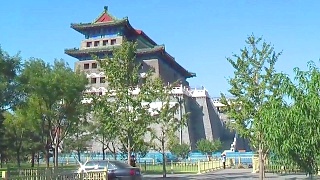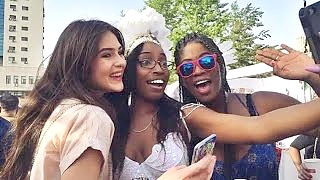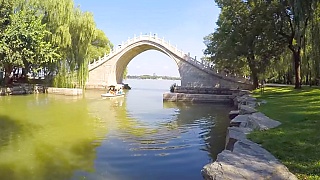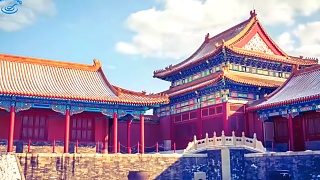Welcome to Beijing!
Discover the vibrant capital city of China, where ancient history meets modernity. Beijing, with its rich heritage, iconic landmarks, delicious cuisine, and bustling streets, promises an unforgettable journey.
About Beijing
Beijing, also known as Peking, is the political, cultural, and educational center of China. As one of the world's oldest continuous civilizations, Beijing has been the heart of Chinese history for centuries.
Key features of Beijing include its historic hutongs (narrow alleys), ancient palaces, and temples alongside modern skyscrapers and shopping malls. The city is renowned for its role in Chinese history, serving as the capital of several dynasties.
Top Attractions
- Forbidden City (Palace Museum): Explore the largest imperial palace complex in the world, with over 9,000 rooms filled with treasures and historical artifacts.
- Great Wall of China: Visit iconic sections like Badaling, Mutianyu, or Jinshanling for stunning views of this UNESCO World Heritage site.
- Tiananmen Square: Discover the heart of Beijing and witness the monumental Tiananmen Gate, Chairman Mao's Mausoleum, and the National Museum of China.
- Temple of Heaven: Experience the spiritual ambiance of this ancient temple complex where emperors once prayed for good harvests.
- Summer Palace: Wander through lush gardens, pavilions, and Kunming Lake at this UNESCO-listed royal retreat.
- Hutong Tour: Take a rickshaw ride through traditional hutongs to see local life and visit courtyard homes.
- 798 Art District: Explore Beijing's contemporary art scene in a former factory complex filled with galleries, studios, and cafes.
- Lama Temple (Yonghe Temple): Admire the impressive Tibetan-style architecture and giant Buddha statue at this active Buddhist temple.
- National Museum of China: Learn about Chinese history, art, and culture through extensive exhibitions.
Culture and History
Beijing is steeped in cultural heritage, offering a glimpse into China's ancient traditions and customs.
- Peking Opera: Attend a live performance of this traditional art form known for its colorful costumes, music, and storytelling.
- Chinese Tea Culture: Visit tea houses to sample different teas and participate in tea ceremonies.
- Imperial Architecture: Marvel at the architectural marvels of the Forbidden City, Summer Palace, and Temple of Heaven.
- Traditional Festivals: Experience festive celebrations during Chinese New Year, Mid-Autumn Festival, and Dragon Boat Festival.
- Beijing Cuisine: Indulge in local specialties such as Peking duck, hotpot, dumplings, and street food delicacies.
Dining in Beijing
Beijing offers a diverse culinary landscape, from gourmet dining to street-side snacks.
- Peking Duck: Savor the crispy-skinned duck at renowned restaurants like Quanjude or Da Dong.
- Street Food: Explore Wangfujing Snack Street for a variety of local snacks, skewers, and sweets.
- Hutong Restaurants: Dine in historic courtyard homes serving homestyle Beijing cuisine.
- Hotpot: Enjoy interactive dining with a bubbling pot of broth and fresh ingredients.
- Dumplings and Noodles: Try handmade jiaozi (dumplings) and la mian (hand-pulled noodles) in bustling noodle shops.
- Teahouses: Relax in traditional teahouses and sample regional teas paired with snacks.
Shopping in Beijing
Discover unique souvenirs, antiques, and modern goods in Beijing's vibrant shopping districts.
- Silk Market: Bargain for silk products, clothing, and accessories at this bustling market.
- Wangfujing Street: Shop for international brands, local goods, and Beijing-style snacks.
- Panjiayuan Antique Market: Browse through a vast array of antiques, ceramics, and curios.
- Hongqiao Pearl Market: Find pearls, jewelry, and electronics at competitive prices.
- Dashilar Street: Explore historic Dashilar alley for traditional handicrafts and nostalgic items.
Practical Tips for Visitors
- Best Time to Visit: Spring (April to May) and autumn (September to October) offer mild weather and fewer crowds.
- Language: Learn basic Mandarin phrases; use translation apps for communication.
- Currency: Use Chinese Yuan (CNY); major credit cards accepted in tourist areas.
- Transportation: Navigate the city with the extensive subway system, buses, taxis, and ridesharing apps.
- Accommodation: Choose from luxury hotels, boutique guesthouses, or budget-friendly hostels.
- Etiquette: Respect local customs, such as using both hands to receive items and addressing people with courtesy.
- Safety: Be cautious of pickpockets in crowded areas; keep valuables secure.
- Internet Access: Purchase a local SIM card for mobile data; free Wi-Fi available in many public places.
- Health and Hygiene: Carry bottled water and practice good hygiene; be aware of air quality during winter.
Enjoy Your Journey in Beijing!
Immerse yourself in the vibrant culture, rich history, and captivating experiences that Beijing has to offer. Whether you're exploring ancient landmarks or indulging in local cuisine, Beijing promises an unforgettable journey that will leave lasting memories.
Beijing, the capital city of China, is a vibrant metropolis steeped in history, culture, and modernity. Here's a brief overview of what you can expect as a tourist in Beijing:
Historical Landmarks:
The Great Wall of China: One of the most iconic structures in the world, the Great Wall is easily accessible from Beijing. Mutianyu and Badaling sections are popular among tourists.
Forbidden City (Palace Museum): A UNESCO World Heritage Site, this vast imperial palace complex was home to Chinese emperors for over 500 years. It houses numerous halls, courtyards, and historical artifacts.
Temple of Heaven: A masterpiece of Chinese architecture, this ancient temple complex served as a place of worship for emperors to pray for good harvests.
Summer Palace: A stunning ensemble of lakes, gardens, and palaces, the Summer Palace served as a retreat for emperors during the Qing dynasty.
Tiananmen Square: One of the largest city squares in the world, Tiananmen Square is flanked by important landmarks such as the Monument to the People's Heroes, the Great Hall of the People, and the Mausoleum of Mao Zedong.
Cultural Sites:
Beijing Hutongs: Explore the narrow alleyways and traditional courtyard residences of Beijing's historic neighborhoods. You can take a rickshaw tour or simply wander around on foot.
Beijing Opera: Experience traditional Chinese opera performances at venues like the Liyuan Theater or the Chang'an Grand Theatre.
798 Art District: A hub of contemporary art and culture, this former industrial area is now home to numerous galleries, studios, and cafes.
Modern Attractions:
Olympic Park: Visit iconic structures such as the Bird's Nest (National Stadium) and the Water Cube (National Aquatics Center) from the 2008 Beijing Olympics.
CBD (Central Business District): Marvel at the futuristic skyline of Beijing's modern business district, which includes landmarks like the CCTV Headquarters and the China World Trade Center Tower III.
Culinary Delights:
Peking Duck: Indulge in Beijing's most famous dish, crispy roast duck served with pancakes, scallions, and hoisin sauce.
Street Food: Explore the city's vibrant street food scene and sample local delicacies like jianbing (savory crepes), lamb skewers, and dumplings.
Practical Tips:
Transportation: Beijing has an extensive public transportation system, including the subway, buses, and taxis. However, traffic can be heavy, so plan your travels accordingly.
Language: While English is not widely spoken, especially outside tourist areas, many signs and transportation announcements are in English. It's helpful to carry a translation app or a phrasebook.
Weather: Beijing experiences four distinct seasons, with hot summers and cold winters. The best times to visit are spring (April to June) and autumn (September to October) when the weather is mild and comfortable.
Etiquette: Respect local customs and traditions, such as removing your shoes before entering someone's home and using both hands to pass or receive items.
Beijing offers a rich tapestry of experiences for tourists, blending ancient heritage with modern innovations. Whether you're fascinated by history, culture, or culinary delights, there's something for everyone in this dynamic city.
 BeiJing City Guide
BeiJing City Guide












![A great film of the Great Wall north of Beijing, including `wild wall`, accompanied by great music (踏古 (Ta Gu) by Lin Hai, `Walking into Ancientry`, with Chinese lute (pipa)). We [mum, dad - videographer - and son and daughter, from Singapore] hiked 3 sections of the Great Wall in winter, without any guides after studying blogs and posts by fellow hikers. All these sections are different. From the unrestored GuBeiKou Great Wall where we were the only people around, to the wonderful JinShanLing, where the climb is steep and every direction gives you good photo opportunities, to the restored MuTianYu where we hiked in heavy snowfall. We stayed at local farmhouses on both nights, dined with the locals and hitched rides to nearby bath-houses. Temperature ranged from -5 deg C (day) to -12 deg C (night). Winter daybreak is at 7am and the sky becomes dark by 5pm so one has only 10 hours of daylight, so plan your travelling and hiking schedules carefully. This once-in-a-lifetime experience was captured on video and we would like to share it with you. The feelings just can`t be described - you need to experience it first hand. Take only memories, leave only footprints and kindness ... A wonderful animation combining traditional Chinese painting and dance - don`t miss it ! 踏古-林海 作曲:林海 视频作者:中国传媒大学动画学院 Hiking the Great Wall 长城 of China in the snow](https://www.beijingbuzzz.com/b183.jpg)
